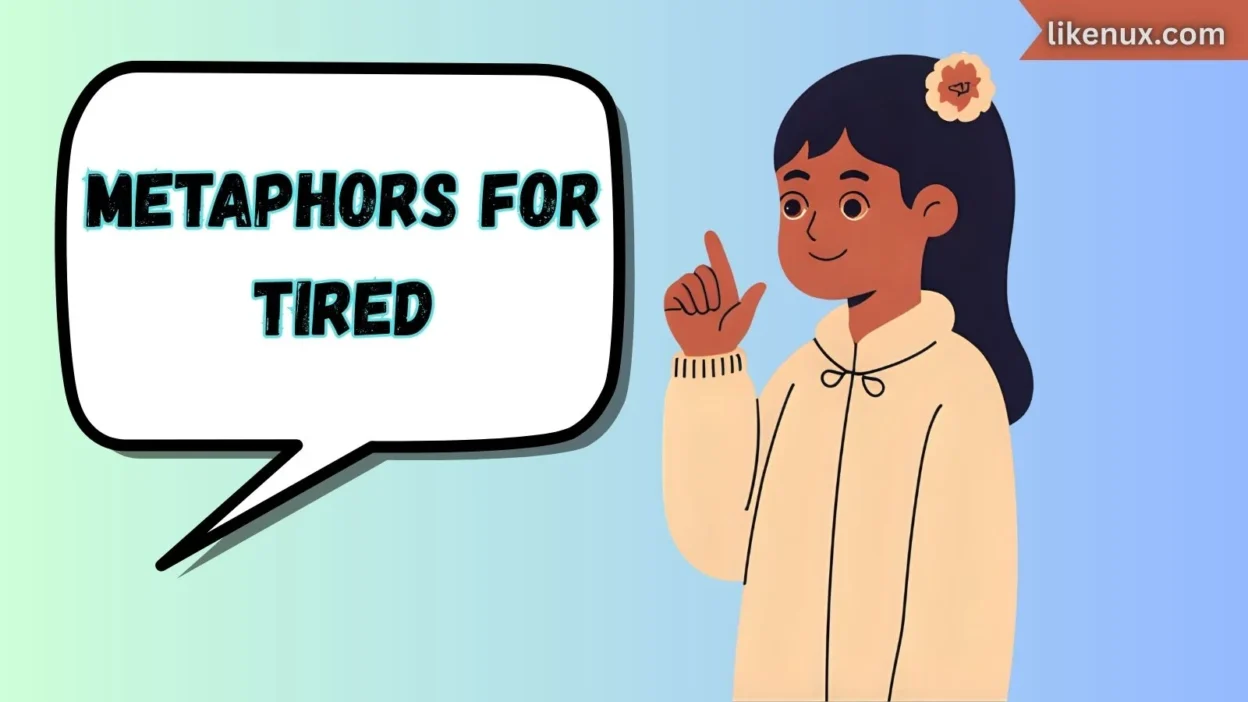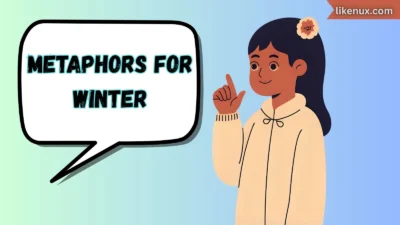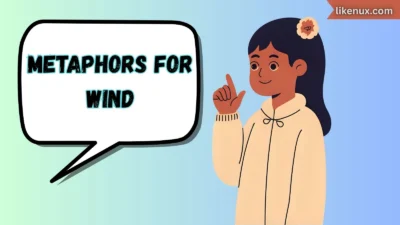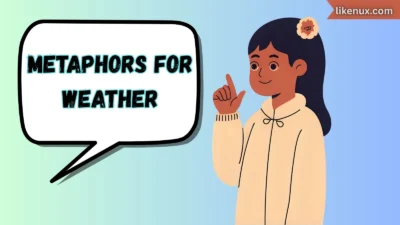Feeling tired is more than just physical exhaustion—it’s a shared human experience we’ve all encountered. Sometimes, finding the right metaphor helps express how deeply fatigue has settled into your body or mind. Whether you’re searching for creative ways to describe tiredness in writing or simply want to communicate your emotions with more warmth and relatability, these 25 metaphors for tired will help you capture that feeling perfectly.
As someone who has spent countless nights working late, I’ve learned that expressing fatigue isn’t just about saying “I’m tired”—it’s about making others feel what you feel.
1. “Running on Empty”
Meaning: You’re completely drained of energy.
In a Sentence: By 10 PM, I felt like I was running on empty, struggling to keep my eyes open.
Best Use: Perfect for describing complete exhaustion after a long day.
Other Ways to Say: Depleted, burnt out, drained.
Read More: Metaphors for Unique
2. “A Candle Burned at Both Ends”
Meaning: You’ve overworked yourself in every direction.
In a Sentence: These deadlines have left me like a candle burned at both ends—worn out and flickering.
Best Use: Great for emphasizing overcommitment.
Other Ways to Say: Overextended, stretched too thin.
3. “Dragging My Feet”
Meaning: Physically moving slowly because of tiredness.
In a Sentence: After the long shift, I was just dragging my feet toward home.
Best Use: When describing visible signs of fatigue.
Other Ways to Say: Sluggish, weary, plodding.
4. “Running Through Mud”
Meaning: Everything feels more difficult because of exhaustion.
In a Sentence: Trying to focus on this report feels like running through mud.
Best Use: Ideal for mental and emotional fatigue.
Other Ways to Say: Mentally stuck, lethargic, heavy-hearted.
5. “Battery on 1%”
Meaning: Your energy reserves are almost gone.
In a Sentence: By Friday night, I was a battery on 1%, ready to shut down.
Best Use: Relatable in tech-driven conversations.
Other Ways to Say: Near collapse, almost done.
6. “Threadbare Soul”
Meaning: Your emotional resilience has worn thin.
In a Sentence: After months of stress, I feel like a threadbare soul, barely holding on.
Best Use: For deep emotional exhaustion.
Other Ways to Say: Spiritually drained, emotionally frayed.
7. “Like a Deflated Balloon”
Meaning: Once full of energy, now completely flat.
In a Sentence: I walked in after work, like a deflated balloon, unable to do anything else.
Best Use: When energy suddenly drops.
Other Ways to Say: Exhausted, spent, worn out.
8. “Carrying a Hundred Pounds on My Shoulders”
Meaning: Fatigue feels heavy and inescapable.
In a Sentence: Grief and lack of sleep left me feeling like I was carrying a hundred pounds on my shoulders.
Best Use: When tiredness is linked with emotional weight.
Other Ways to Say: Burdened, weighed down.
9. “My Mind is Foggy”
Meaning: Tiredness makes your thoughts unclear.
In a Sentence: After the all-nighter, my mind was foggy and unfocused.
Best Use: For cognitive fatigue.
Other Ways to Say: Mentally cloudy, hazy, unfocused.
10. “Like a Fading Light”
Meaning: Energy slowly dwindling away.
In a Sentence: I’m like a fading light, barely able to keep shining.
Best Use: Gentle, poetic expression of exhaustion.
Other Ways to Say: Dimming, waning.
11. “Wheels Spinning but Going Nowhere”
Meaning: Working hard but feeling ineffective due to fatigue.
In a Sentence: I tried to study, but I was just spinning my wheels without progress.
Best Use: For frustrated, ineffective tiredness.
Other Ways to Say: Stuck, unproductive, worn.
12. “Like Walking Through Quick Sand”
Meaning: Progress feels painfully slow.
In a Sentence: Every step in that meeting felt like walking through quicksand.
Best Use: When tiredness impacts efficiency.
Other Ways to Say: Slowed down, hindered.
13. “A Worn-out Shoe”
Meaning: Overused and falling apart.
In a Sentence: After months of non-stop work, I feel like a worn-out shoe.
Best Use: When you’ve been overworked for a long time.
Other Ways to Say: Overworked, frayed.
14. “Hollow Inside”
Meaning: Empty of energy or feeling.
In a Sentence: She looked at me with hollow eyes, completely drained.
Best Use: For emotional numbness due to fatigue.
Other Ways to Say: Empty, void, emotionally tired.
15. “Like a Spent Match”
Meaning: Used up and no longer burning.
In a Sentence: I collapsed into bed, like a spent match that had nothing left to give.
Best Use: Short bursts of energy leading to sudden exhaustion.
Other Ways to Say: Depleted, extinguished.
16. “A Rusty Machine”
Meaning: Your body isn’t working smoothly anymore.
In a Sentence: I creaked out of bed like a rusty machine this morning.
Best Use: For describing physical sluggishness.
Other Ways to Say: Stiff, slow-moving.
17. “Eyes Heavy as Lead”
Meaning: Your eyelids feel impossibly heavy.
In a Sentence: During the lecture, my eyes were heavy as lead.
Best Use: For describing physical drowsiness.
Other Ways to Say: Sleepy, drooping.
18. “Sinking Ship”
Meaning: Slowly going down under pressure.
In a Sentence: Without rest, I felt like a sinking ship, beyond rescue.
Best Use: When tiredness feels like inevitable collapse.
Other Ways to Say: Overwhelmed, failing.
19. “Out of Steam”
Meaning: No energy left to continue.
In a Sentence: Halfway through the project, I completely ran out of steam.
Best Use: For work-related fatigue.
Other Ways to Say: Exhausted, drained, done.
20. “Brain Like Molasses”
Meaning: Slow, sticky thoughts that won’t move.
In a Sentence: My brain was like molasses during that 8 AM meeting.
Best Use: For mental sluggishness.
Other Ways to Say: Foggy, lethargic.
21. “Like a Crumpled Paper”
Meaning: Used, wrinkled, and worn out.
In a Sentence: I felt like a crumpled paper tossed aside by the end of the day.
Best Use: Poetic for emotional and physical fatigue.
Other Ways to Say: Crushed, fatigued.
22. “Heart Running on Fumes”
Meaning: Barely holding on emotionally.
In a Sentence: My heart was running on fumes, but I kept going for my family.
Best Use: For emotional endurance at its limit.
Other Ways to Say: Hanging by a thread, drained.
23. “Like a Wilting Flower”
Meaning: Slowly losing vitality.
In a Sentence: Without sleep, I felt like a wilting flower.
Best Use: Soft, tender expression of tiredness.
Other Ways to Say: Fading, drooping.
24. “Gasping for Energy”
Meaning: Desperate for rest or fuel.
In a Sentence: After the marathon, I was gasping for energy just to stand.
Best Use: For extreme physical exhaustion.
Other Ways to Say: Desperate, spent.
25. “Like a Flickering Flame”
Meaning: About to go out completely.
In a Sentence: By midnight, I was like a flickering flame, moments from burnout.
Best Use: When you’re at the very end of your stamina.
Other Ways to Say: Barely holding on, near burnout.
FAQs
1. Why use metaphors to describe tiredness?
Metaphors help convey emotions more vividly, making your experience relatable and impactful.
2. Are these metaphors suitable for professional writing?
Absolutely—many of these can enrich storytelling, workplace updates, or creative writing.
3. Can metaphors help with mental health communication?
Yes, they provide a gentle, expressive way to talk about feelings without being too clinical.
4. How do I choose the right metaphor?
Pick one that matches your emotional or physical state—poetic for deep feelings, simple for everyday fatigue.
5. Are these metaphors universal?
Many are widely understood, but cultural context matters—choose those that resonate with your audience.
Conclusion
Tiredness is universal, but how we describe it shapes how others understand us. Whether you feel like a flickering flame, a wilting flower, or running on empty, these metaphors for tired offer warmth, relatability, and clarity. Use them to connect, communicate, and express yourself authentically because even in exhaustion, there’s beauty in being understood.

David Robert is a passionate innovator driven by creativity, vision, and purpose. He turns bold ideas into impactful realities through focus, leadership, and dedication.



